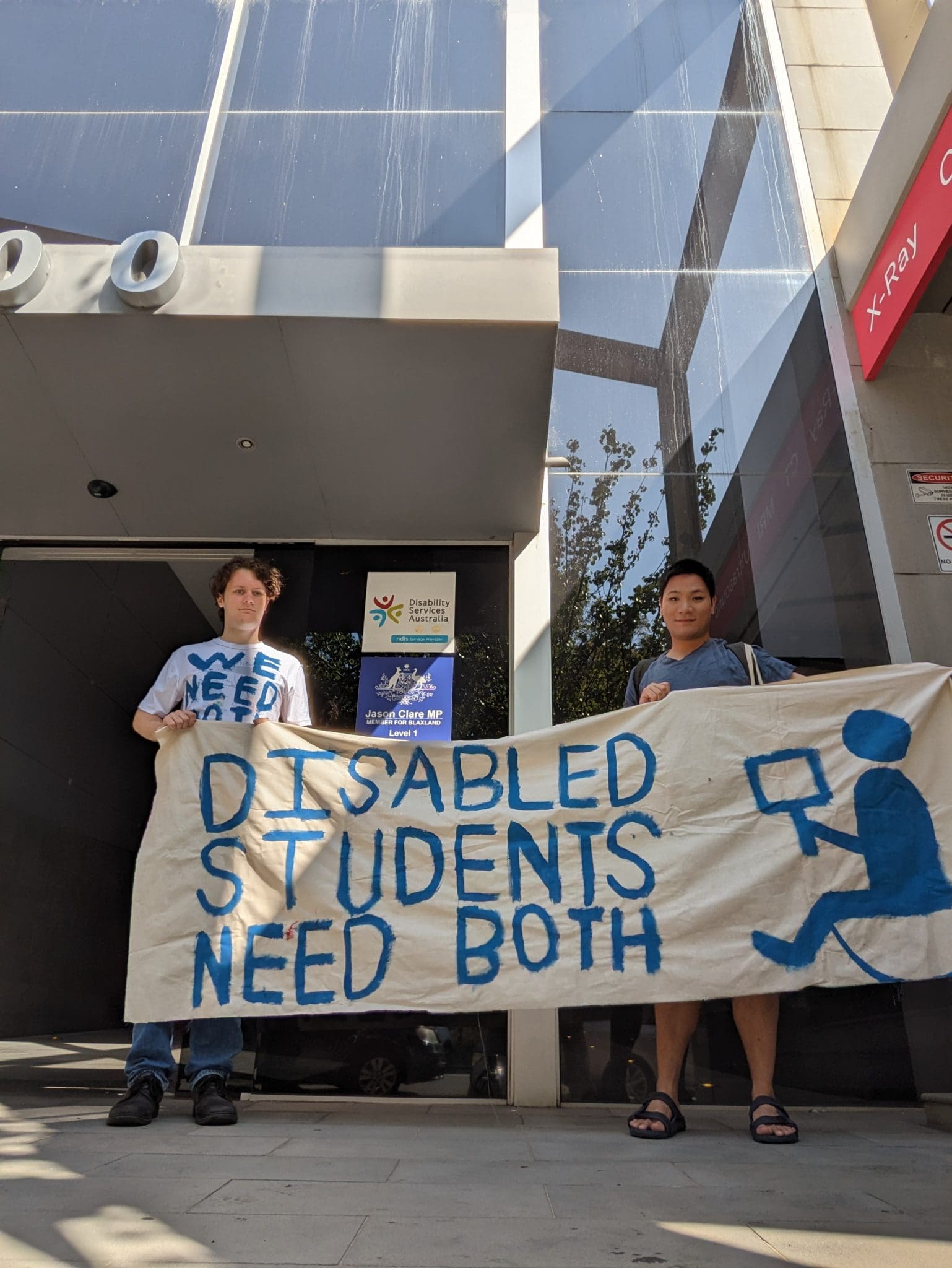Student activists rallied outside of Federal Education Minister Jason Clare’s electorate office today to protest the government’s announcement that all students will be required to attend in-person learning from July 2023. The rally forms part of We Need Both: Online and In-Person Options Now, a wider movement against in-person only learning by disabled students.
National Union of Students (NUS) Disabilities Officer Isabella Harding joined the contingent virtually, saying that Clare and the federal government must provide hybrid learning options to accommodate students with disabilities, particularly for immunocompromised people.
“Historically, and in this government, our rights as disabled people have not been acknowledged. There has been an opportunity missed to reform the higher education sector because when you make things easier for disabled people, you make things easier for everyone,” Harding said.
Harding also voiced strong criticism of universities’ lack of progress when it comes to campus and infrastructural accessibility.
“The choice shouldn’t be between education and risk of death. The choice shouldn’t be between education and not being able to come to a tutorial to begin with because you can’t enter the bloody building.”
Echoing Harding’s stance, USyd SRC Disabilities Officer Jack Scanlan criticised Sydney University’s reliance on online learning when it suited university executives’ agenda.
“The University immediately had the Zooms up, they said we need online learning,” said Scanlan.
“The University already has the infrastructure [for remote learning], they already did this for two years. It shouldn’t be just because COVID-19 isn’t affecting [non-disabled] people anymore and we shouldn’t be cutting back on these services.
“The bottom line is that Jason Clare and the government can put these measures in place. Open University still does it. But it is just especially the large universities who want to be prestigious and say: ‘Oh, you have to be on campus’.”
Meanwhile, Sydney University Postgraduate Representatives Association (SUPRA) Disabilities Equity Officer and casual academic Gemma Lucy Smart honed in on the requirement’s burdens on international students, carers and people who have childcare responsibilities.
For her, overseas students are among the groups disproportionately disadvantaged by the rules, who face a cost of living crisis, being exploited by third parties that higher education institutions may have outsourced teaching responsibilities to: “We’re not providing them [international students] with accessibility where it doesn’t suit us.”
Going further, Smart points out that a large swathe of the graduate student community will be affected by the removal of hybrid learning options, with burdens falling heavily on students with families.
“We’re talking about students who have established lives who have families and with care responsibilities to a greater degree than the undergraduate community, and they need flexibility in their learning environment.
“By being punitive and removing those options for hybrid learning, you’re excluding certain groups from education, and those groups are disabled students, carers, people with families, predominantly women in those families and First Nations students.”
Scanlan and online protesters then came to Clare’s Office demanding for the Minister to speak to the NUS Disabilities Officer. However, due to Clare being in Canberra, an electorate office staff member told protesters that words will be passed onto the Minister in the near future.
Disclaimer: Khanh Tran is one of the USyd SRC Disabilities Officers.





